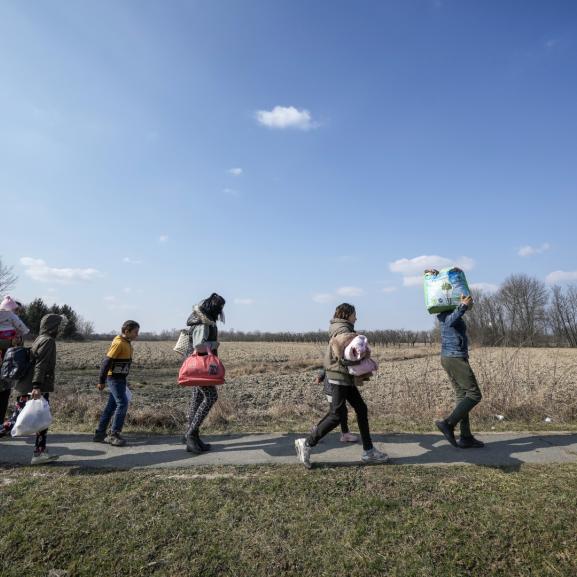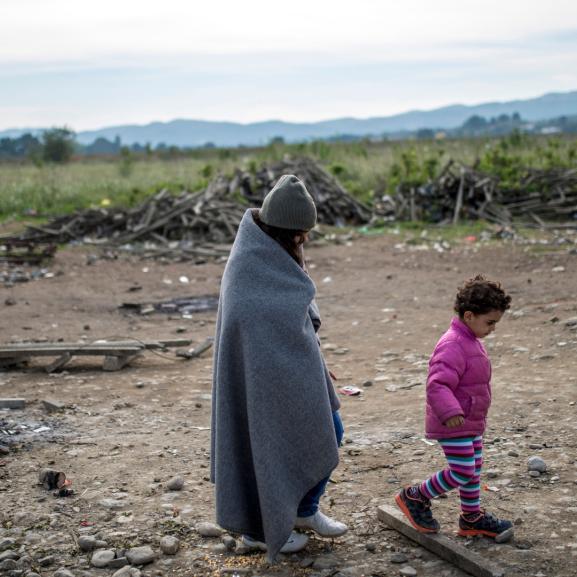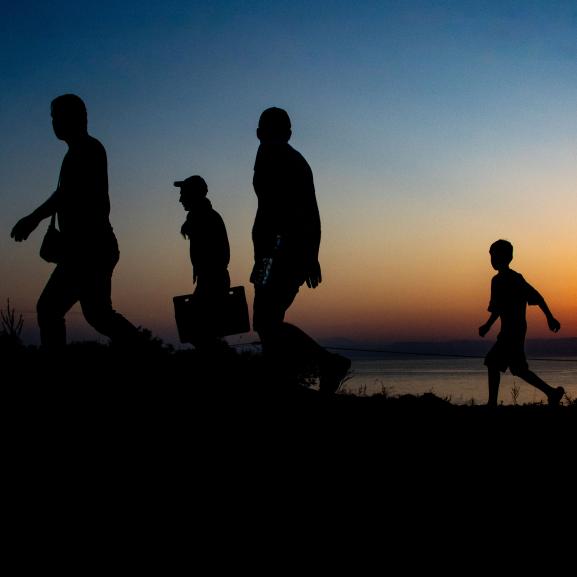Chief Inspector finds UKBA Detained Fast Track failing torture survivors
The Independent Chief Inspector of the UK Border Agency (UKBA) has warned that there is currently "too great a risk" that survivors of torture are being placed in the Detained Fast Track (DFT) system whilst their applications for asylum are considered – contrary to the Agency's own policy of not processing survivors through this system.
In a report published yesterday, John Vine expressed his concern "at the continued risk faced by victims of torture" and made a series of recommendations to the UKBA, a number of which reflected concrete suggestions made to him by the Survivors Speak OUT network – former Freedom from Torture clients – who met with the Chief Inspector during his inspection to raise their concerns and suggest improvements to the system.
Kolbassia, Survivors Speak OUT, said:
"The Survivors Speak OUT network was really pleased when we heard the Chief Inspector was about to inspect DFT because those of us who had been through it had a number of grave concerns. It is good to see that he has taken some of our recommendations onboard in his report."
Survivors who receive help from Freedom from Torture routinely report that detention in the UK can feel like being 'tortured all over again' and inevitably the traumatising impact inhibits their ability to give a detailed account of everything they have suffered. This is a key reason why UKBA policy is not to process torture survivors through DFT, however, in reality extremely vulnerable people are still regularly routed in.
Dr Juliet Cohen, Freedom from Torture Head of Doctors, said:
Kolbassia added:
The report found that the inadequacy and inconsistencies of the screening process – in place for deciding which cases are considered suitable for DFT – resulted in torture survivors being wrongly detained. The report sampled 114 cases and found that almost 1 in 3 people (30%) were released from detention at some stage – the vast majority before a decision had been made on their claim for asylum – and nearly half (44%) of these were for health issues or evidence that an individual was a survivor of torture or victim of trafficking.
Kolbassia said:
"The screening officers are not well-trained to deal with torture survivors and the screening questionnaire is not designed to identify them. There is no privacy for a screening interview – everybody else in the room can hear what you are saying and it can feel as if you're being ridiculed. It is therefore not surprising that survivors are reluctant to reveal extremely personal information."
John Vine told the UKBA that it must do more to elicit relevant information from people in a sensitive way to safeguard vulnerable individuals, but it is not possible for screening officers to ask about the details of the asylum claim because applicants have not yet had legal advice.
Keith Best, CEO Freedom from Torture, said:
"The Chief Inspector has acknowledged there are 'tensions between obtaining basic information and the specific evidence needed to assess the suitability of a person and their claim for the DFT'. His findings, if followed through to their logical conclusion, have a far stronger implication – that the DFT is flawed by design and has no place in a fair asylum system."






